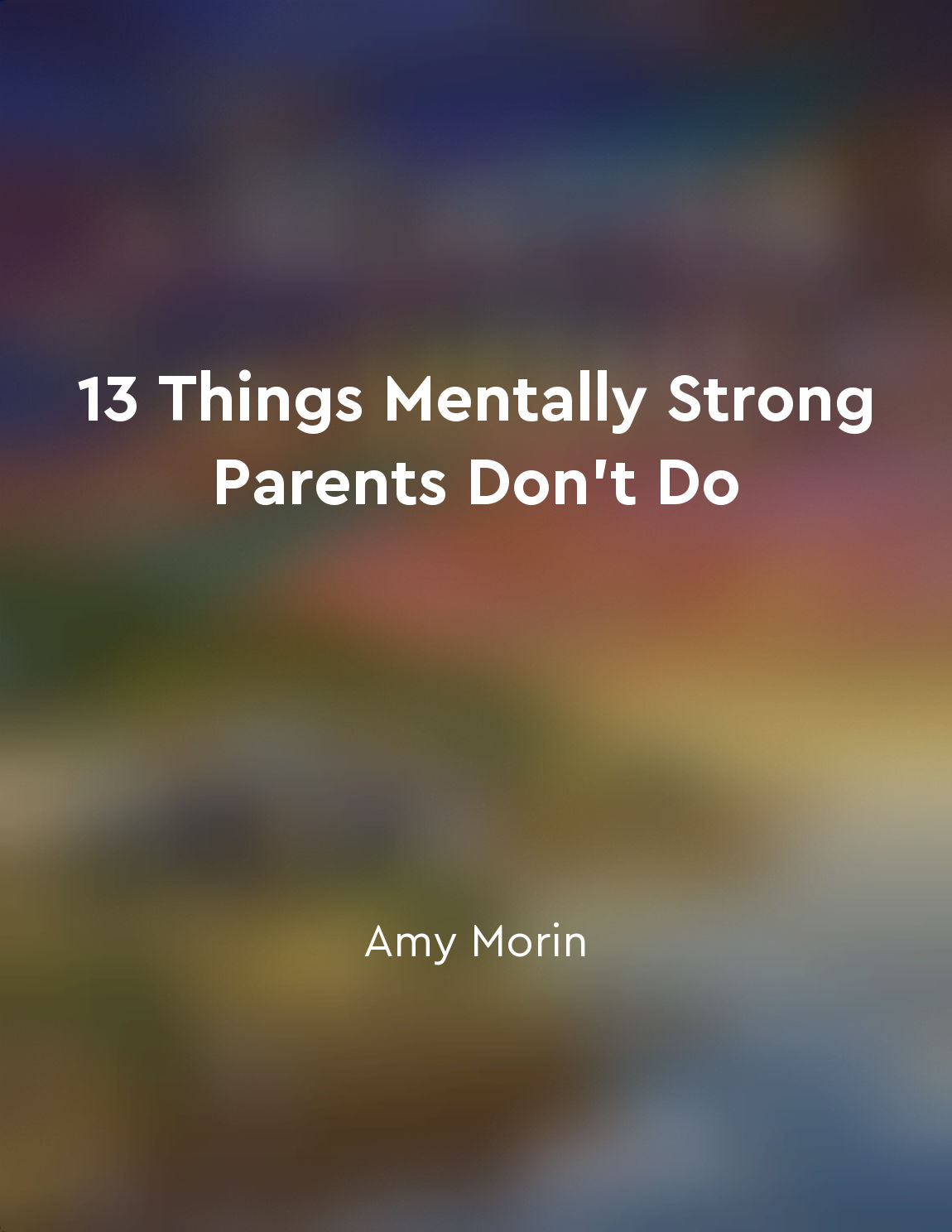Dutch parents value independence in their kids from "summary" of The Happiest Kids in the World by Rina Mae Acosta,Michele Hutchison
In the Netherlands, parents believe in giving their children the freedom to explore and learn on their own. This emphasis on independence starts from a young age, with children encouraged to walk or cycle to school by themselves, take public transport, and even go on solo camping trips. This may seem daunting to parents in other countries, but Dutch parents trust that their children are capable of handling these responsibilities. This focus on independence is rooted in the Dutch culture's belief in self-reliance and self-sufficiency. By allowing their children to take on tasks and make decisions independently, parents are helping them develop important life skills and a sense of confidence in their abilities. This approach also fosters a sense of trust between parents and children, as the children feel empowered to take on challenges and make choices for themselves. Dutch parents understand that mistakes and failures are a natural part of the learning process. Instead of shielding their children from adversity, they encourage them to learn from their experiences and grow stronger as a result. This resilience is a valuable trait that will serve children well in their adult lives, as they navigate the ups and downs of the world. By promoting independence in their children, Dutch parents are helping them develop a strong sense of identity and autonomy. Children who are given the freedom to explore and make choices for themselves are more likely to become self-assured and capable individuals. This approach also fosters a sense of respect for children's individuality and uniqueness, allowing them to flourish in their own way.- The Dutch parenting philosophy of valuing independence in children is a reflection of the country's broader cultural values of trust, self-reliance, and resilience. By giving their children the freedom to learn and grow on their own terms, Dutch parents are setting them up for success in the future.
Similar Posts

Refrain from Avoiding Difficult Conversations with Your Child
Avoiding difficult conversations with your child won't make problems disappear. In fact, avoiding those conversations can lead ...

Offer positive reinforcement for improved focus
Positive reinforcement is a powerful tool when it comes to helping children improve their focus. By offering rewards for stayin...
Dutch parents teach their children to be empathetic and kind
Dutch parents often prioritize teaching their children empathy and kindness above other qualities. This emphasis on instilling ...
Social media has a significant influence on adolescents
Social media has become an integral part of the daily lives of adolescents. Platforms such as Instagram, Snapchat, and TikTok h...

Foster a sense of independence and selfreliance in children
To help children develop independence and self-reliance, parents need to step back and let their kids make mistakes and learn f...
Allow for natural consequences
When we talk about allowing for natural consequences, we mean letting kids experience the outcomes of their actions. This appro...
Encourage play and imagination
Encouraging play and imagination is a crucial aspect of parenting that is deeply ingrained in Danish culture. In Denmark, child...
Build strong relationships with your child
Developing strong connections with your child is crucial for their emotional well-being and overall development. When you prior...

Practice Teaching Your Child Important Life Skills
Teaching your child important life skills is crucial. It's not enough to simply tell them what to do or expect them to figure i...

